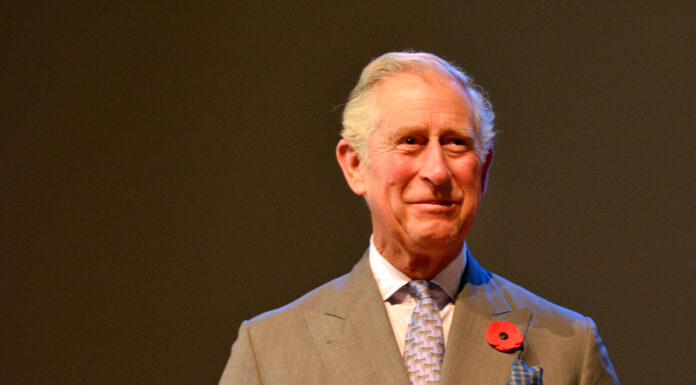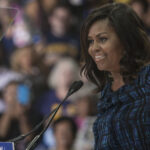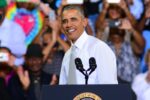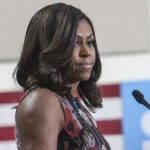Alberta Premier Danielle Smith has called on King Charles III to stand up to President Donald Trump over his repeated threats to annex Canada, describing it as a “direct confrontation to British sovereignty.”
In an interview with The Telegraph, Smith emphasized the deep royal ties that Canada maintains with the British monarchy as a Commonwealth nation.
“We sing ‘God save the King’ every week when we’re in the legislature,” Ms. Smith said. “I swear an oath to the King, our cabinet secrecy is affirmed by our oath to the King, and we’ve got him on our bank notes.”
Smith argued that these strong monarchical connections are precisely why “the notion of a 51st state is being rejected out of hand” by Canadians. The Alberta premier believes the king has a duty to respond to Trump’s provocative statements about absorbing Canada.
“So I think he should have something to say about [Trump’s campaign to absorb Canada], because it is, I think, a direct confrontation to British sovereignty,” Smith told The Telegraph.
The controversy comes amid escalating tensions between the United States and Canada following Trump’s imposition of increased tariffs on Canadian goods, with a reduced 10 percent tariff on energy products. These trade measures have added fuel to concerns about Canadian sovereignty after Trump repeatedly referred to Justin Trudeau as “Governor” and claimed Canada would “cease to exist” without U.S. trade.
Trudeau, who recently announced his resignation as prime minister, met with King Charles at Sandringham House on Monday where he reportedly raised these concerns directly with the monarch. The meeting has been interpreted by some observers as a diplomatic effort to secure royal backing against Trump’s provocative statements.
However, royal sources suggest that the king’s role as a constitutional monarch limits what he can say publicly on the matter.
“As a global statesman and a head of state for both the UK and Canada, the King’s role is highly significant, and His Majesty is determined to play his part, within appropriate parameters,” a royal source told The Telegraph. “His role by necessity and constitutional obligation is to offer symbolic gestures, rather than express comment.”
Instead of making direct statements, the king appears to be making more subtle diplomatic moves. He is reportedly planning an overseas tour of Canada in 2026, which some see as a demonstration of support for Canadian sovereignty. During a recent visit to HMS Prince of Wales, the king was pictured wearing his Order of Canada, Canadian Order of Military Merit, and Canadian Forces’ Decoration medals – an unusual choice outside of Canada.
Robert Finch, chairman of the Monarchist League of Canada, welcomed these symbolic gestures. “Of course a statement would be wonderful but this [subtle statement] helps,” Finch told The Telegraph. He also suggested that any royal visit to the United States should be preceded by a visit to Canada, emphasizing, “Let’s get him here to Canada first before going to Washington.”
The situation is complicated by constitutional limitations on the king’s role. As the constitutional monarch of Canada, King Charles can only act on the advice of the Canadian prime minister. Jason Kenney, the former Alberta premier, has called on Trudeau to make a formal request of the king to “underscore” Canada’s sovereignty.
Meanwhile, Alberta and the federal government have temporarily set aside their typically adversarial relationship to present a united front against Trump’s tariffs. Smith, who leads the United Conservative Party (UCP), joined with Trudeau to condemn the U.S. trade measures despite having previously sought direct talks with Trump at Mar-a-Lago.
“These tariffs will hurt the American people, driving up costs for fuel, food, vehicles, housing and many other products,” Smith wrote on X. “This policy is both foolish and a failure in every regard.”
The Alberta premier has suggested that Trump’s actions have created an opportunity to reconsider pipeline projects that would transport Alberta’s energy products east, west, and north through Canada – rather than primarily south across the U.S. border. Smith said that Canada should be looking to supply energy to European allies, noting that according to recent reports, EU member states paid more for Russian gas in 2024 (21.9 billion euros) than they spent defending Ukraine (18.7 billion euros).
One point of disagreement between Smith and Trudeau concerns Trump’s claims about fentanyl trafficking, which the president has used as partial justification for his tariffs. While Trudeau has dismissed this as a political excuse, Smith said she agrees with Trump’s assessment.
“We have super labs that have been busted in British Columbia and Alberta, and our own people are dying in British Columbia and Alberta. So I would have to differ from our federal government,” Smith said. “We should be doing this for our own sake. We shouldn’t want to be a haven for organised crime and cartels to be able to victimise our own people and then also create an export problem.”
The issue of Trump’s comments about Canada has reportedly dominated political discussions within Canada, including the debate in Trudeau’s Liberal Party as they look to replace him. Pierre Poilievre, the new Conservative leader, has also criticized Trump’s statements about Canadian sovereignty.
As Trump prepares for an upcoming state visit to the United Kingdom, the British government’s approach to the issue remains delicate, particularly given its efforts to secure U.S. support on Ukraine. Any direct royal statement on Canadian sovereignty would carry significant diplomatic risks at this sensitive time in U.S.-U.K. relations.








